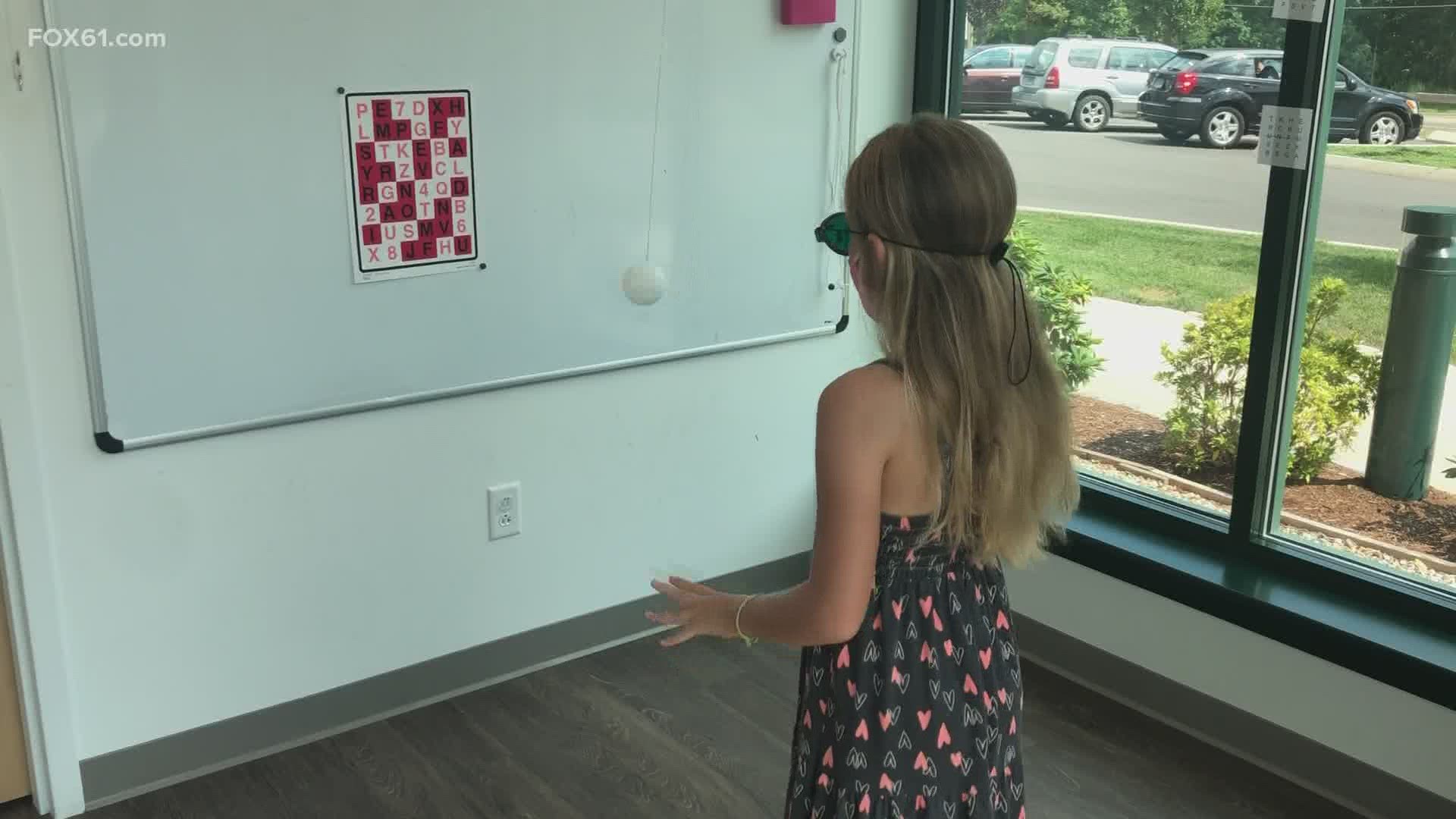HARTFORD, Conn — It’s hard for any parent to witness their child struggle to learn, to pay attention, to focus on their schoolwork. With the new school year soon approaching, whether it be in the classroom or at home, some parents may be wondering what they can do to set their children up for success. Taking a closer look at your child’s vision may be to the place to start.
Dr. Melissa Lambright, OD, of SIGHT in Farmington and West Hartford, and a member of the College of Optometrists in Vision Development and the Neuro-Optometric Rehabilitation Association, says functional vision may play a significant role in how a child performs academically and it’s not something typical vision screenings examine.
“20-20 vision is just ‘Can you read the letters 20 feet away’, but functional vision is how we actually perform, how we read. Functional vision is like the mechanics of our visual system; how we get information of the page” says Dr. Lambright.
It’s an issue she says she sees quite often, affecting roughly one in 10 children.
Dr. Lambright put together a list of 10 signs parents should look out for if they’re concerned about their child’s academic performance, which may indicate a problem with functional vision:
- Avoids/dislikes reading, writing and homework.
- Develops disruptive classroom behaviors, cannot sit still, or exhibits a short attention span.
- Tests poorly despite knowing the material and verbalizing the answers.
- Takes longer than average to complete assignments.
- Covers one eye with their hand or arm.
- Uses their finger to track while reading.
- Makes “careless” mistakes on work; reverses letters or numbers.
- Performs strong early in an assignment but struggles to finish.
- Has difficulty with hand-eye coordination in academics, sports and physical activities.
- Holds reading material too close to the eyes.
Dr. Lambright cautions that it’s possible that these behaviors may be misdiagnosed as other conditions, such as ADD ( Attention Deficit Disorder) or ADHD (Attention Deficit Hyperactivity Disorder). She suggests finding an optometrist that specializes in assessing visual function to rule out the possibility.
If you’d like to find a specialist near you, please visit the College of Optometrists in Vision Development website, www.covd.org. For more information on Dr. Lambright and SIGHT Multispecialty Center, visit www.sight.net

